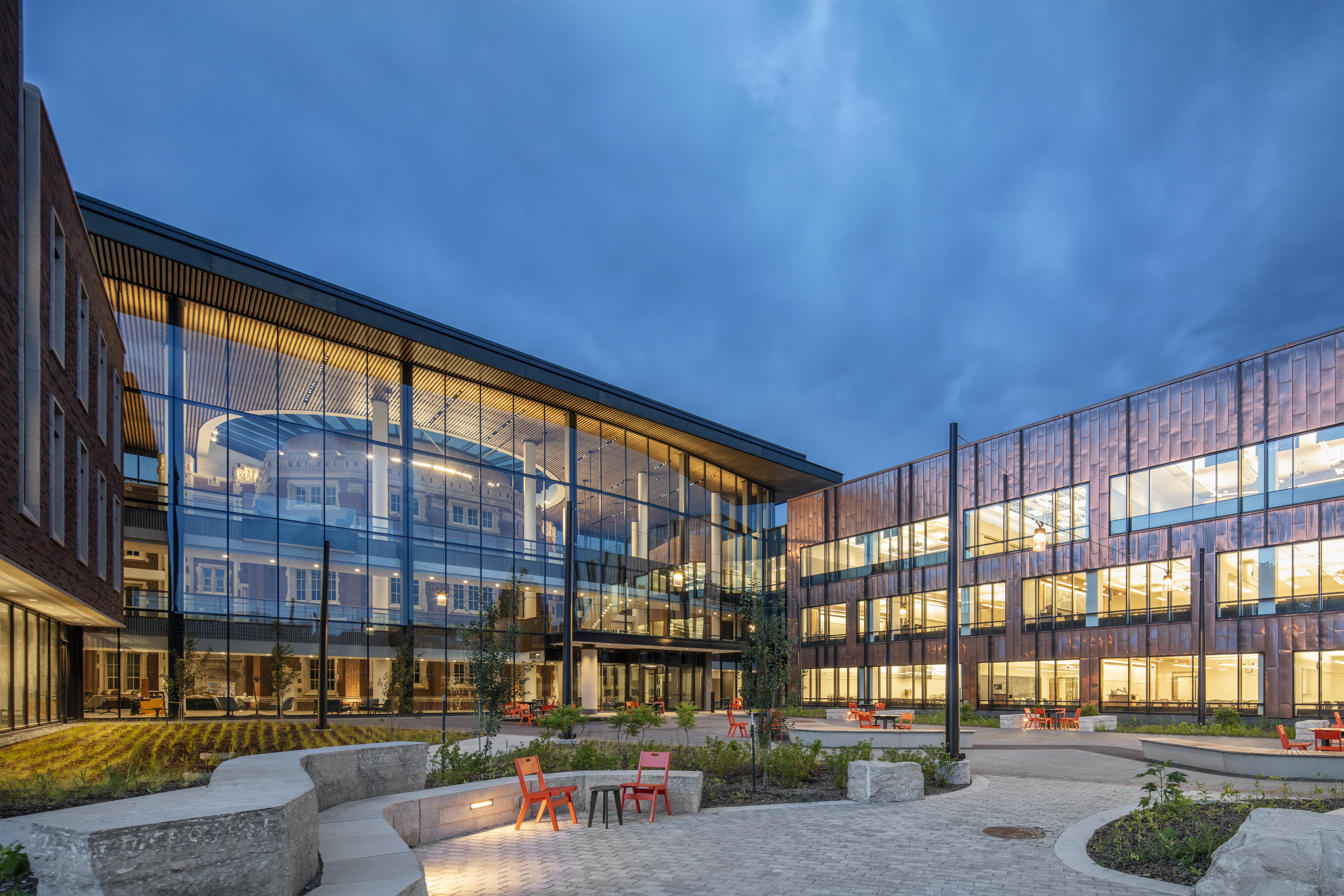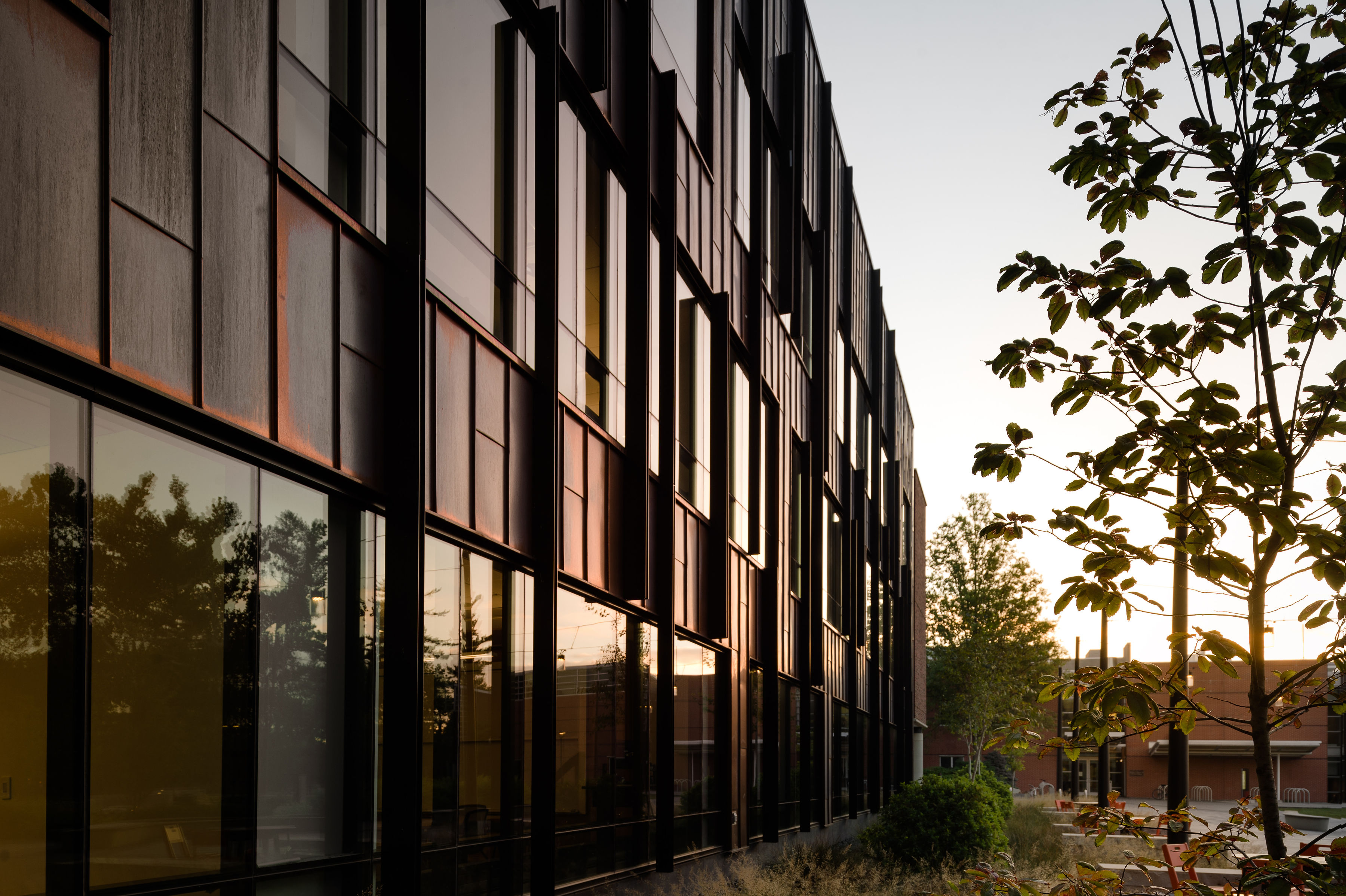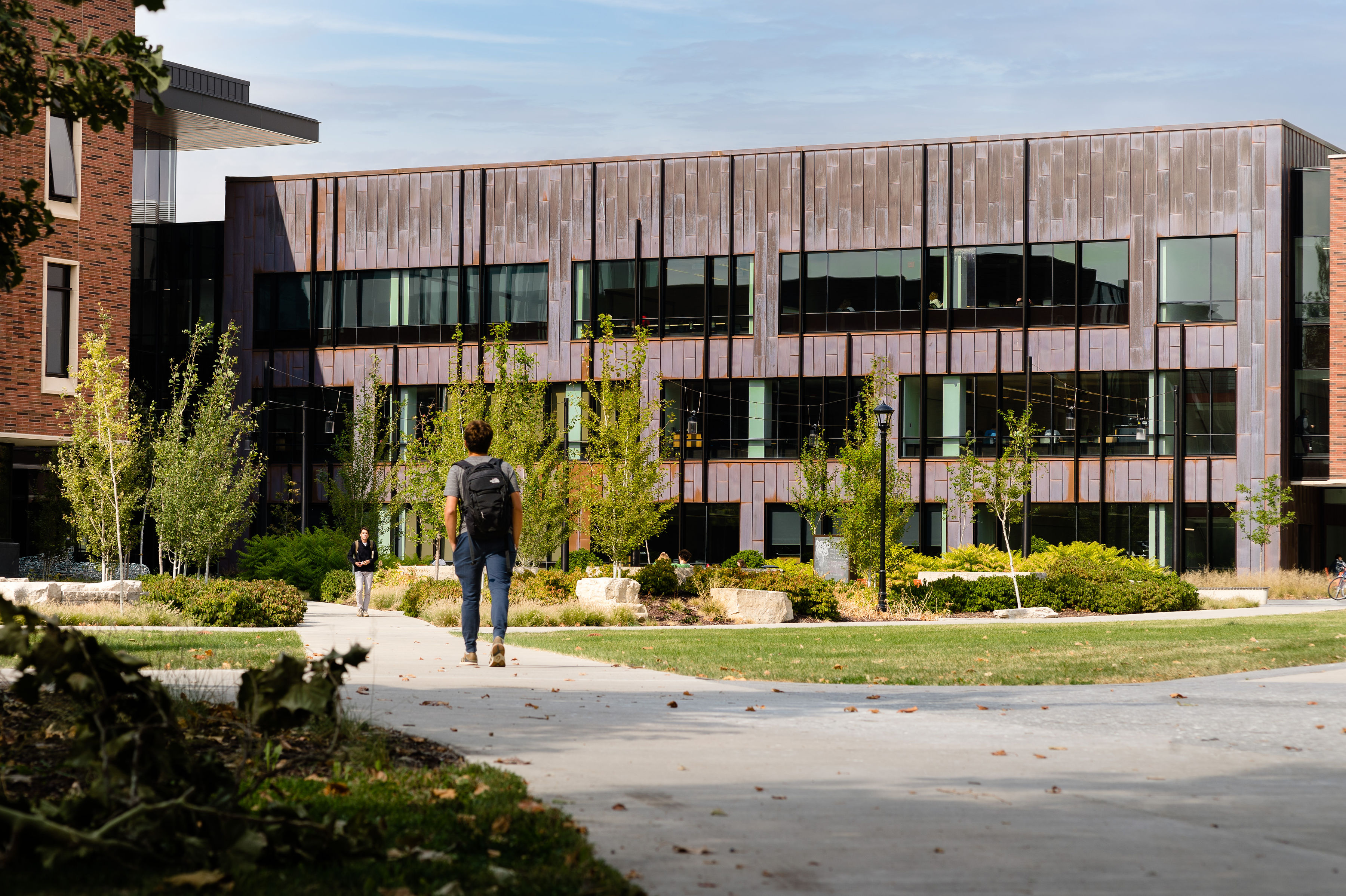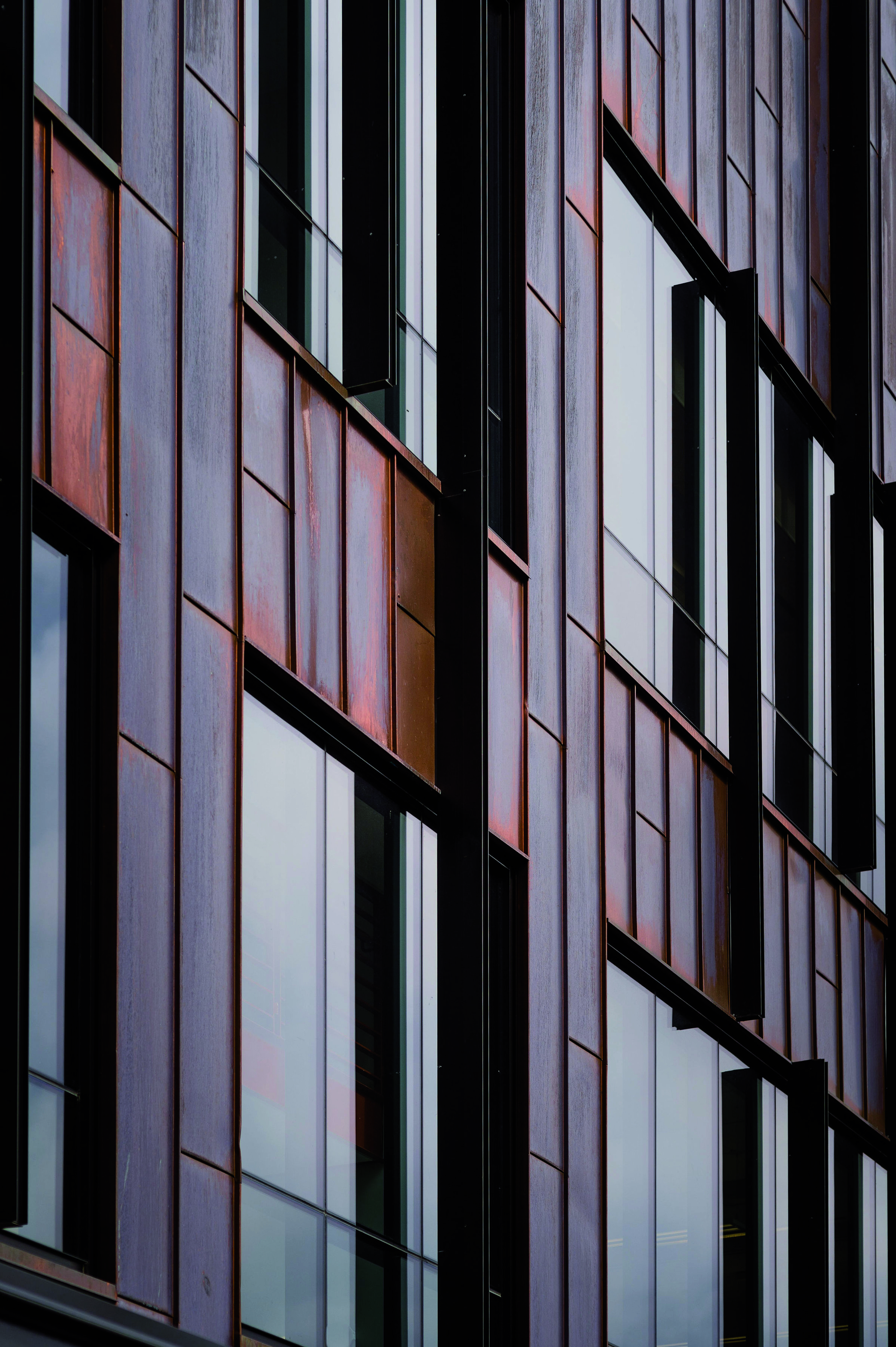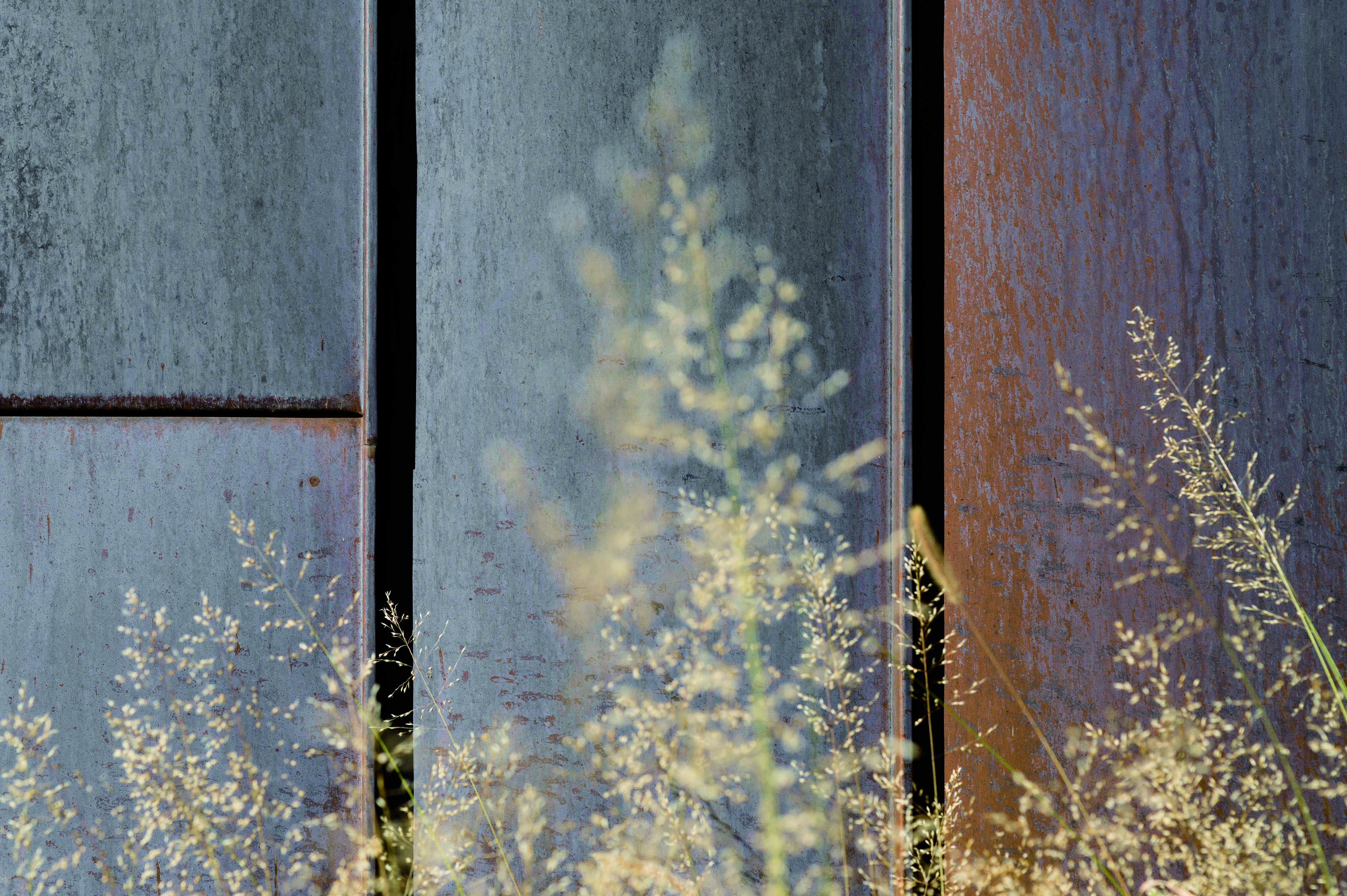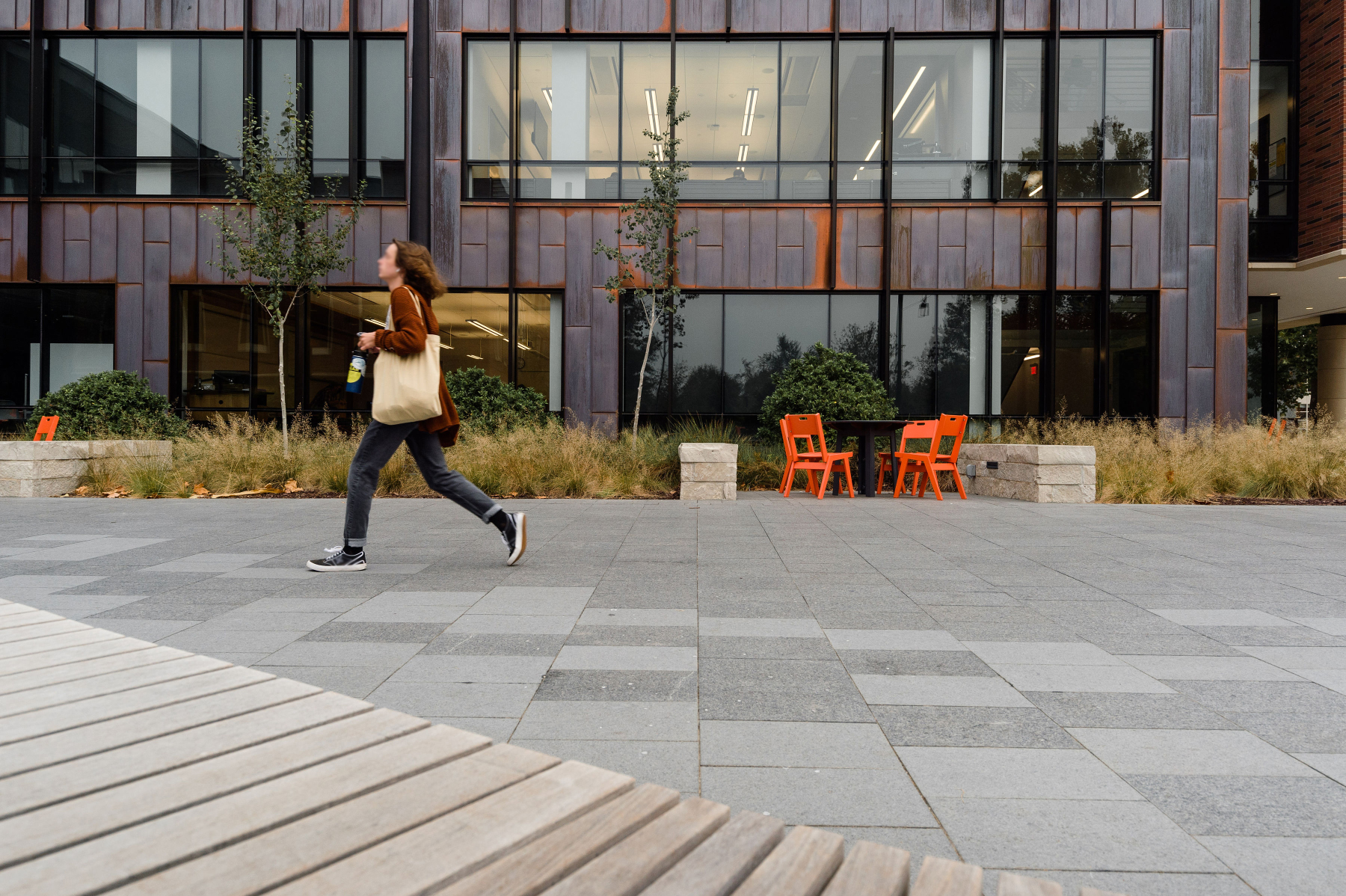Grinnell, Iowa
New Construction
Architect
Page Southerland Page, Inc.Washington, District of Columbia
General Contractor
McGoughDes Moines, Iowa
Roofing/Sheet Metal Contractor
Exterior Sheet Metal, Inc.Grimes, Iowa
To expand Grinnell College’s Humanities and Social Studies Center, architects Page Southerland Page worked with contractor McGough Construction to build two new pavilions and renovate two existing ones, all connected by bridges and a three-story atrium. The new structure embraces the 1917 Alumni Recitation Hall and the 1905 Carnegie library (now Carnegie Hall). As a whole, the project creates a central, light-filled courtyard that looks toward the future of liberal arts education while respecting the heritage of Grinnell’s treasured landmarks.
On the two new pavilions, the team used copper and brick to break down the exterior building scale. South-facing elevations of two pavilions feature raw copper paneling that will naturally patinate over time, capturing the look of a penny worn from many years of circulation. This “dirty penny” look is achieved through a standing seam metal panel anchored to felt underlayment and a fire-retardant, exterior-grade plywood insulation system, installed on a cold-formed metal framing base wall configuration. Horizontal seams align with the adjacent curtain wall, with independently anchored curtain wall fin mullions extending into the copper system.
The client wanted a material that would be natural and durable. Copper provided these characteristics and brought warmth to the exterior elevations and surrounding outdoor spaces. The copper on part of the north pavilion flanks a major exterior plaza space that has become the new campus destination. In this plaza, the sun hits the south-facing copper façade, and the copper provides indirect, reflected light for the outdoor space. Additionally, the building provides protection from the wind in the shoulder season.
Initially, the project team discussed pre-patina options for the copper paneling but ultimately settled on a natural finish that now serves as a backdrop for the native Iowa prairie planted as bio-retention for the project. The tall grasses visually pop against the copper tones of the façade.
Grinnell College wanted the project to demonstrate its commitment to social responsibility, which it defines as the idea that an individual action at the local level can have a profound effect on the global community. As a natural material with a long lifespan and high recyclability, copper was able to provide the aesthetic qualities mentioned above while also contributing to the overall sustainability of the project.
